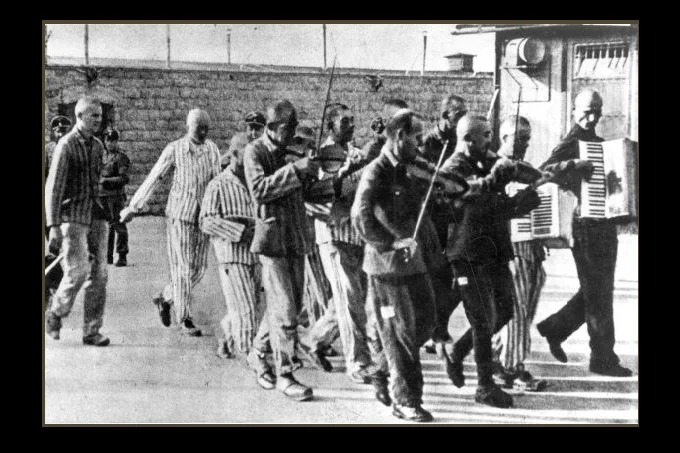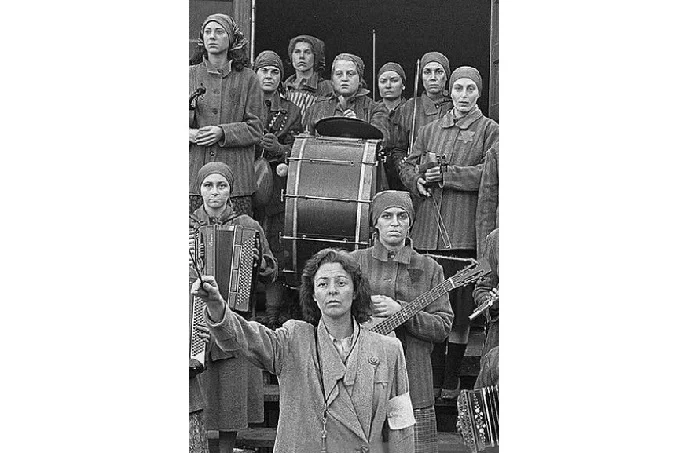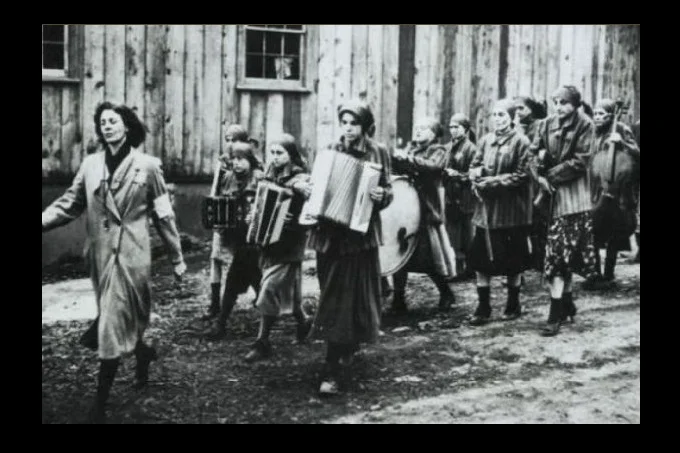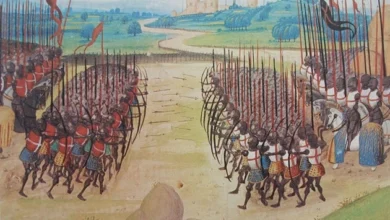Why did the Nazis create bands in concentration camps during World War II?

The first musical groups appeared almost simultaneously with the concentration camps themselves. It is hard to imagine how the prisoners, frightened and exhausted, picked up musical instruments and began to play. Bach and Beethoven, jazz compositions, marches, and melodies from films, but it is even more difficult to imagine the feelings of those who listened to this music, and the listeners were other prisoners.
However, the German command was not at all concerned about the cultural development of the prisoners; the orchestras had a completely different task.
Orchestras in captivity
It is unlikely that any of the musicians who ended up in the camp could have imagined that he would play here. However, very soon after the creation of the network of concentration camps, the first orchestras began to appear.
As the captives themselves claimed, the very first tools were confiscated from local residents or sent by relatives of the prisoners from home. The first rehearsals, which began in January 1941, took place in the basement of a camp brothel, and the attitude towards the musicians was almost the same as towards the women who appeased the Nazis.
Many expressed a desire to be part of the orchestra. Despite the fact that I had to rehearse in inhuman conditions, it was easier than in the hardest physical work. The first men’s group was led by Franz Nyrichlo, a prisoner who played the oboe. After he was released and sent to the army, this place was taken by Adam Kopytsinsky, who helped other prisoners in every possible way. There was also a women’s group in Auschwitz, founded by Maria Mandel, whose rehearsals were led by the violinist Alma Rose, who later died in the camp.

Musical orchestras, in fact, played any music, and classical, blues, and popular tunes. The choice of repertoire, as a rule, depended on the preferences of the camp authorities, however, Bach and Beethoven were obligatory, as they served as confirmation of the superiority of the Aryans, marches were also obligatory learned, because in this case, they were an excellent tool for managing people. Well, all other genres delighted the ears of overseers.
In addition, the barracks had their own musical groups, of course, illegal ones. Here they performed music that the prisoners liked, however, when the Germans found out about the musical meetings, the perpetrators were immediately punished.

Prisoners were forced to sing during beatings or hard and completely meaningless work. Representatives of religious organizations were supposed to sing German hymns, the communists – “Internationale”. But national minorities had to learn songs with insults addressed to them. However, this was precisely the main mission of the Auschwitz orchestras.
Music as torture
The main task facing the musical groups of the concentration camps was torture. The prisoners were forced to listen to music when they went to work in the morning and returned to the barracks in the evening. Melodies literally crashed into consciousness along with all the other sounds: groans, barking watchdogs, blows of sticks, and shouts of overseers.
The bands met the newly arrived prisoners and discouraged them. New captives were driven out of the cars and lined up in a column to the music, at the same time not stinting on blows. Some were immediately sent to the camp, while others… immediately to the crematorium.
The music played was the background for the groans, sobs, and screams of those who were tortured by the Nazis. The latter, with the help of music, gained courage and sophistication, and the musicians were forced to play, sometimes shedding tears, because, at that time, their loved ones were dying. Because during planned executions on Sundays, musicians were also required to play. At the same time, the orchestra always played in the literal sense of the word at gunpoint, each time they stood surrounded by SS men who held loaded weapons at the ready.
The musicians also had to entertain their executioners when they organized parties. The Nazis bought the best instruments for the orchestras, and the musicians were left on their feet from hunger. At the same time, men were not exempted from day work and rehearsed after the shift. For this, they received, at best, a few extra grams of bread, a couple of cigarettes, and very rarely, a couple of sips of cognac. Women played almost from morning until late at night, they were exempted from day jobs.
The guards considered the musicians expendable, and prisoners like themselves looked at the orchestra members with undisguised contempt. Many musicians died in concentration camps, and the survivors never picked up instruments again.
For them, music was torture, and they preferred to forget how to play forever. Music has not ceased to be associated with endless torment, moans, screams, and physical pain, not to mention moral pain. Before their eyes, all their lives were the faces of those who died while they played.
To get the latest stories, install our app here.




